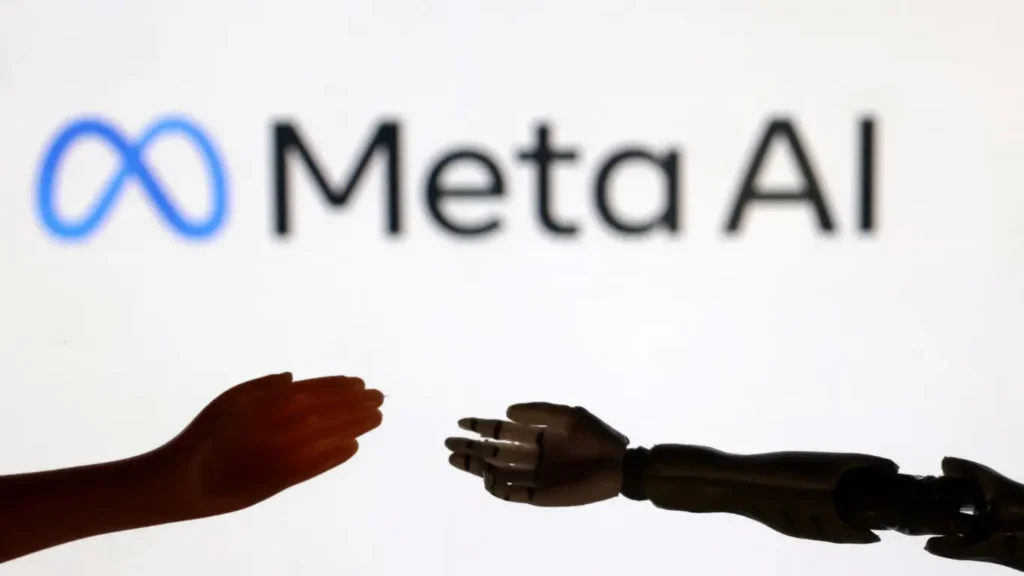When you first hear the term Meta AI, it might sound like another futuristic buzzword. But behind it lies something far more human—an effort to create technology that doesn’t just understand data, but truly understands us.
This article isn’t written to impress search engines or sell hype. It’s written for you—the one who’s searching not just for facts, but for meaning. You’re here because something about “Meta AI” caught your attention. Maybe it’s curiosity. Maybe it’s hope. Maybe it’s fear of being left behind.
Whatever brought you here, let’s explore Meta AI not just as a product—but as an experience.
The Beginning: Why Meta Stepped Into AI
Meta (formerly Facebook) has always been about connection—bringing people together across the world. But over time, the world changed. Social media got faster, conversations became louder, and in the chaos, something got lost: real understanding.
That’s where Meta AI began—not just as a research lab or a machine-learning experiment, but as a way to bring context back into communication.
Meta’s vision wasn’t just to create another chatbot or a smart assistant. It was to build systems that could sense, interpret, adapt—and maybe one day, relate.
That means understanding your voice, your tone, your culture, your language, your emotion—and responding in a way that feels less like software, and more like a silent companion who just gets it.
A Personal Experience: What It Felt Like to Use Meta’s AI
We remember the first time we interacted with Meta’s LLaMA 2—an open-source language model. The experience wasn’t just impressive—it was almost eerie.
You type a thought. Not just a question, but a real, vulnerable thought—like “Why do I feel stuck in life?”
And what came back wasn’t robotic. It wasn’t dry. It was reflective, calm, gentle, and almost… human.
The AI didn’t tell us what to do. It offered thoughts, reflections, even quotes from writers and psychologists. And in that moment, we realized: this isn’t about AI replacing people. It’s about technology finally learning to meet us where we are.
Why People Search for Meta AI
You didn’t land on this page randomly. You came here because you felt that same pull—something inside you wondering:
What is Meta doing with AI?
How will it change the way I work, live, or think?
Is it just another tech gimmick, or is there something real behind the name?
And those are the right questions to ask.
Because Meta AI is not just for developers. It’s for educators building more personalized learning. It’s for artists trying to explore the fusion of human creativity with machine support.
It’s for small business owners trying to talk to their customers more naturally. It’s for you, whoever you are—standing on the edge of something new.
Breaking Down the Magic: What Makes Meta AI Special
Underneath the surface, Meta AI is built on some seriously powerful architecture. We’re talking large-scale language models (like LLaMA), multimodal systems that understand images, sound, text, and even physical signals.
But forget the code for a second.
What makes it special is how it applies that power to everyday life:
You’re traveling abroad? Meta’s AI can help you translate not just words, but cultural tone.
You’re building a website? It can help write product descriptions, FAQs, even generate creative ideas.
You’re dealing with mental overload? It can help organize your thoughts, remind you of habits, suggest calming routines.
You’re lonely? It can be a soft voice in a silent room—not a replacement for humans, but a bridge to feeling understood.
The Future Isn’t Cold. It’s Kind.
One of the biggest fears around AI is that it will make the world colder, more automated, less human.
But Meta AI challenges that idea. It’s proof that technology doesn’t have to be cold. That with the right intentions, we can create systems that help us feel more connected, more empowered, and sometimes, even more ourselves.
We’ve worked with many AI tools. But what stood out with Meta’s direction was this: the focus isn’t just on solving problems—it’s on honoring the person behind the problem.
A World Where Technology Listens
Imagine this:
You walk into your home, tired from the day. Your voice is low, your energy is off. You mumble something about dinner, and instead of just listing recipes, your AI picks up your tone and says, “Looks like it’s been a long day—how about something quick and comforting tonight?”
That’s not science fiction. That’s emotional awareness. And it’s what Meta AI is aiming for.
In tests across different use cases—healthcare chats, customer service, personal journaling—Meta’s models didn’t just generate answers. They listened. They adapted. They remembered patterns. And they responded like they cared.
Real Talk: What It Means for You
Let’s be clear. AI isn’t perfect. Not yet. And maybe it never will be.
But Meta AI is a step toward something powerful: tools that work with you, not just for you.
If you’re:
- A parent trying to help your kid learn better…
- A startup founder building with limited resources…
- A musician seeking inspiration from the unknown…
- Or someone simply looking for clarity in a noisy world…
Meta AI can become part of that journey—not as a replacement for your mind, but as an amplifier of your voice.
Final Thoughts: You’re Not Alone in This Future
Technology is often described as a race. But Meta AI feels less like a sprint, and more like a conversation. A slow, thoughtful one. One where you don’t have to shout to be heard.
So the next time you search “Meta AI,” remember: you’re not looking for machines. You’re looking for meaning. For help. For progress. For connection.
And if AI can be part of that—then maybe the future is not just smart. Maybe it’s kind.


